Entrepreneur founded an empire
Pioneer wholesale grocer also helped help start some of city's best-known businesses
Advertisement
Read this article for free:
or
Already have an account? Log in here »
To continue reading, please subscribe:
Monthly Digital Subscription
$0 for the first 4 weeks*
- Enjoy unlimited reading on winnipegfreepress.com
- Read the E-Edition, our digital replica newspaper
- Access News Break, our award-winning app
- Play interactive puzzles
*No charge for 4 weeks then price increases to the regular rate of $19.95 plus GST every four weeks. Offer available to new and qualified returning subscribers only. Cancel any time.
Monthly Digital Subscription
$4.99/week*
- Enjoy unlimited reading on winnipegfreepress.com
- Read the E-Edition, our digital replica newspaper
- Access News Break, our award-winning app
- Play interactive puzzles
*Billed as $19.95 plus GST every four weeks. Cancel any time.
To continue reading, please subscribe:
Add Free Press access to your Brandon Sun subscription for only an additional
$1 for the first 4 weeks*
*Your next subscription payment will increase by $1.00 and you will be charged $16.99 plus GST for four weeks. After four weeks, your payment will increase to $23.99 plus GST every four weeks.
Read unlimited articles for free today:
or
Already have an account? Log in here »
Hey there, time traveller!
This article was published 09/10/2016 (3377 days ago), so information in it may no longer be current.
Pioneering Winnipeg businessman Alexander Macdonald’s name might not be as well-known as some of his contemporaries, such as Alloway, Ashdown, Pollard or Higgins. Yet, he was involved in the formative years of some of Manitoba’s best-known companies and ran one of Western Canada’s largest business empires, which still bears his name.
Born in 1844 to a farming family at Pitlochry, County Perthshire, Scotland, Macdonald came to Canada in 1866 and first settled in Seaforth, Ont., where he worked at a dairy farm and general store. The lure of the West beckoned, and he arrived aboard the steamship Selkirk at the foot of Lombard Street July 1, 1871.
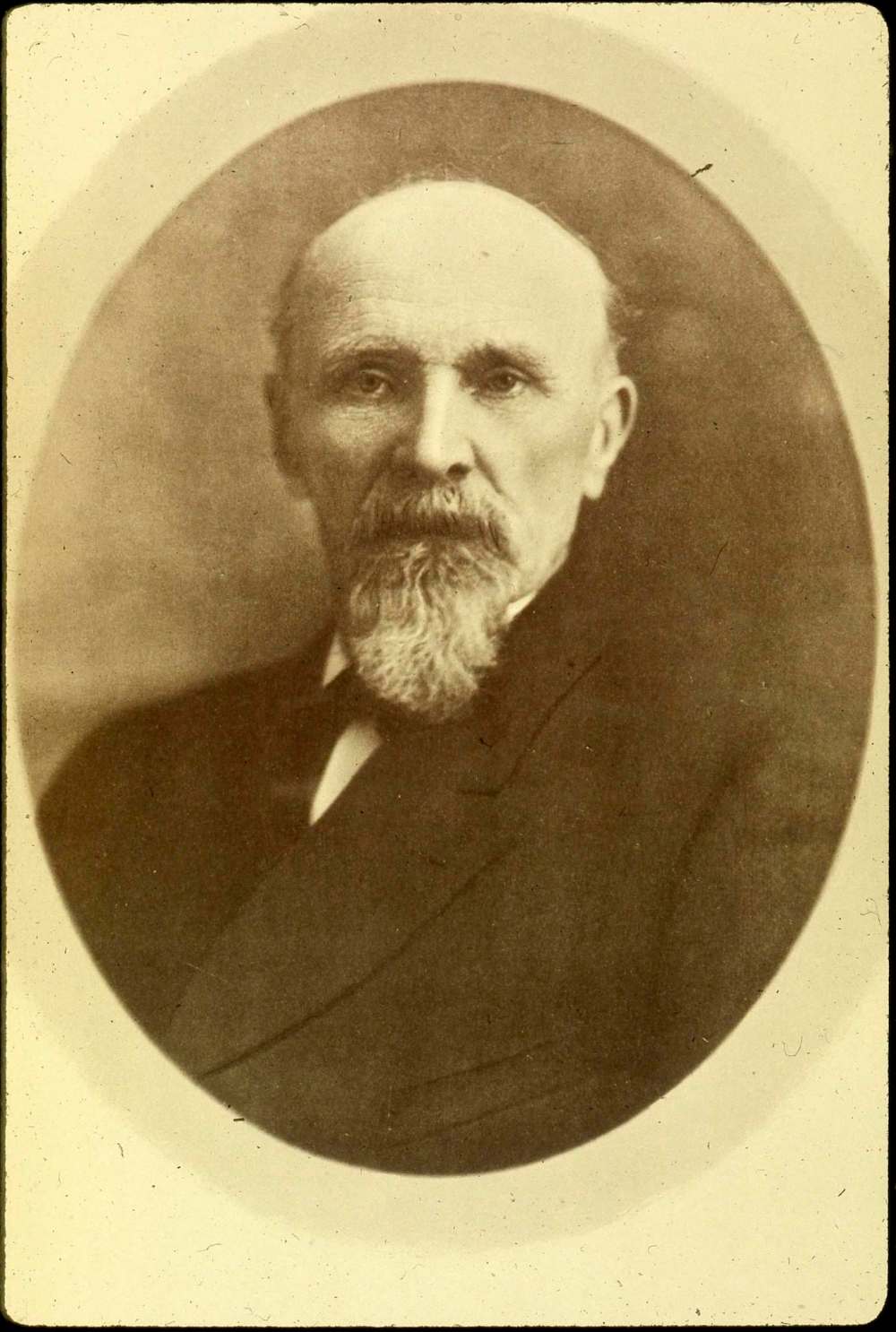
‘I was here at Winnipeg’s birth, I was here at her christening, and I have stayed to see her grow into one of Canada’s mightiest cities’– Alexander Macdonald
Macdonald’s first job was as a clerk at Palmer Clark, a general merchant. He then moved on to the venerable Higgins and Young, a dry goods company that became a full-fledged department store serving Manitoba and all points west. It is best-known today for selling the first bushel of Manitoba wheat to Ontario in 1876 — the official start of the West’s grain trade.
With a secure job under his belt, Macdonald returned to Ontario in 1877 to marry Annie Sullivan. They returned to the city and began a family that would eventually consist of four sons and a daughter.
Macdonald was not a rich man. He was from a modest family and arrived with just a few dollars in his pocket. He was not well-educated, having worked on the family farm from an early age. There was something about him, however, that made a lasting impression on those he met, even those well above him in the social pecking order.
John Dafoe, editor of the Manitoba Free Press, said his first impressions of Macdonald was: “strong, ambitious, energetic, aggressive and generally possessing those qualities which characterize the average Scotchman.”
In the late 1870s, Higgins and Young wound down the grocery side of its business and, thanks to some financial success in the land-speculation game, Macdonald was able to pull together $30,000 to establish A. Macdonald Co., a wholesale grocery business on Market Street. He also partnered in a similar enterprise called Macdonald and Mahoney in Battleford, Sask., which at the time was the capital of the North-West Territories.
Macdonald travelled regularly between the two warehouses via Red River cart, visiting customers and new settlements along the way.
In 1882, Macdonald purchased the Fortune Block on Main Street at St. Mary Avenue from developer Mark Fortune and had the “near twin” Macdonald Block built on the adjacent lot as his new headquarters. The Market Street site became the company warehouse. During his time at the Macdonald Block, between 1882 and 1902, Macdonald established himself as one of the best-known and richest businessmen in the West.
Macdonald grew his wholesale business not through the traditional method of having a couple of large warehouses in key cities and an army of travelling salesman in the field taking orders. Instead, he established a network of around a dozen smaller warehouses from Thunder Bay to Victoria, and his customers came to him. Along the way, he also collected a handful of food-production facilities and packaging plants.
As the company grew, Macdonald kept up his traditional annual road trips to visit his warehouses and major customers until the year before his death. It was said he knew every one of his employees by name and knew the people of the West like few others.
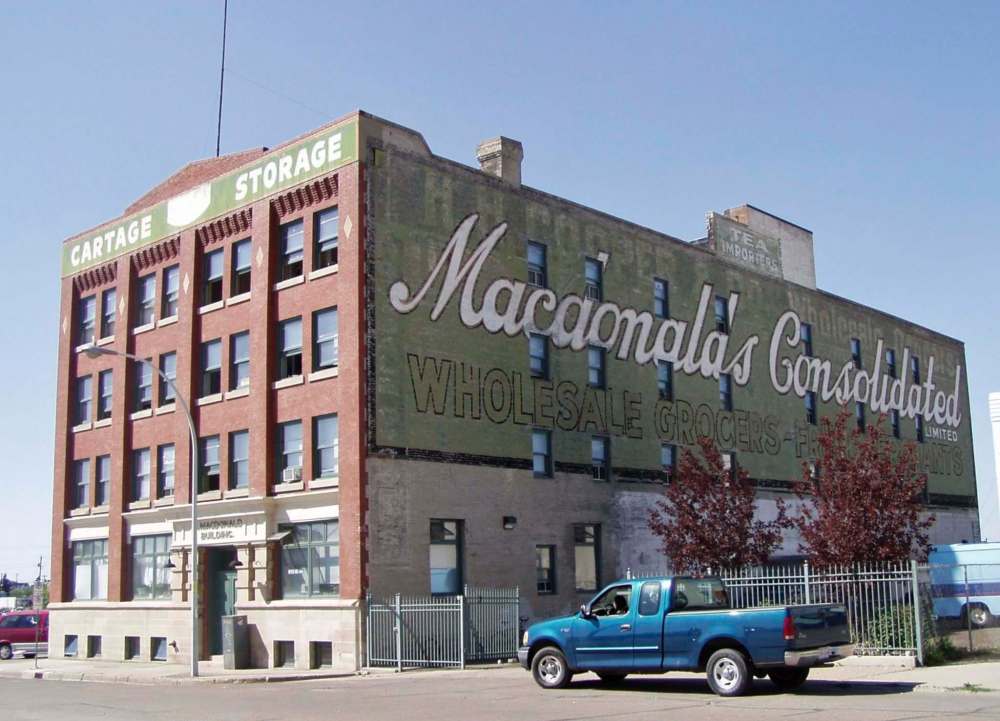
Aside from his own company’s interests, Macdonald was also a director of numerous other businesses, ranging from railroads and grain elevators to mortgage companies.
Considered a well-read man, it is not surprising Macdonald was involved in the formative years of two of Winnipeg’s daily newspapers.
In the case of the Free Press — where, as a new arrival, he helped operate the presses on their first few weekly editions in 1872 — he returned as a director in 1886 for a period of three years. He was also a founding director of the Winnipeg Tribune when it began publishing in January 1890 and served as its chairman in 1903.
When Great-West Life was established in 1892, Macdonald was its founding chairman, a position he held until 1922. He oversaw its growth into the West’s largest company, controlling hundreds of millions of dollars in assets.
Like many leading businessmen at the time, Macdonald also dabbled in local politics, serving as an alderman in 1887 and 1888. He became mayor in 1892, declining to run for a second term, saying the job was “a sacrifice of personal interest and great sacrifice of personal comfort.”
By 1911, Macdonald was considered one of the most powerful and best-known businessmen in the West. The Tribune, musing about who the wealthiest man in the city was in 1911, stated: “Mr. Macdonald… if not the daddy of the millionaires, is well forward in the race.”
In 1912, Macdonald sold 75 per cent of his company for $2.5 million to the Dominion Bond Company of Toronto, which, in turn, took it public and renamed it Macdonalds Consolidated.

In addition to his shares in this new company, which were managed by the Macdonald family and a couple of key employees, Macdonald was allowed to retain his holdings in British Columbia under the A. Macdonald Company name. Both companies were headquartered out of a newly constructed building at 313 Pacific Ave.
Despite the diminished role, MacDonald still had more than enough business interests to keep him busy, and he was now able to devote more time to charitable causes.
He had been a longtime benefactor of organizations such as the Children’s Home of Winnipeg, Knowles School for Boys and the Home of the Friendless, the latter a homeless mission focused on orphans, single-parent families and the elderly.
His interest in the welfare of children grew as he and Annie faced a number of personal tragedies involving their own children.
One son, Graham, died after a fall at the family’s cottage at Lake of the Woods in 1910. Another, Douglas, who had been ill since birth with an unnamed “affliction,” died in 1914 at the age of 23. A third son, Charles, died during the influenza epidemic of 1918.
A Tribune editor who wrote a column about Winnipeg’s “old-timers” under the pseudonym “the Wanderer” noted in 1920 that for years, Macdonald’s Sundays consisted of getting up early and going to the Children’s Home of Winnipeg and the Home of the Friendless to see what money or supplies they needed. He then visited the rooms, speaking to each of the children and stopping to stroke the heads of the orphaned babies in their cribs.
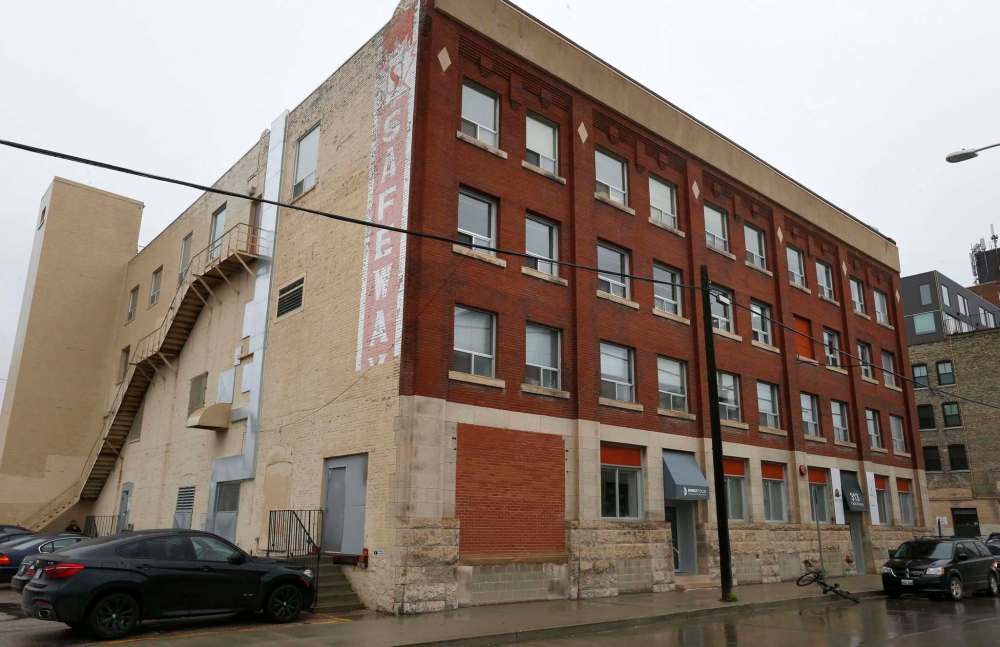
After his death, it was noted in a number of eulogies and tributes the extent of Macdonald’s generosity would never truly be known because many of his benefactors were sworn to secrecy.
The last year of Macdonald’s life was filled with more sorrow.
Annie, once a formidable force in her own right in church and charitable work, had been in failing health for about a decade.
She died in August 1927 at their Dromore Avenue home just weeks shy of the couple’s 50th wedding anniversary.
The last Macdonald son, Duncan, who worked alongside his father as vice-president of Macdonalds Consolidated, died Aug. 8, 1928 of pleurisy at the Elmwood sanatorium.
Macdonald, who at the time of Duncan’s death was bedridden with an illness of his own, died two weeks later Aug. 23, at the age of 84.
The last surviving member of his family, his daughter Grace, was at his bedside.
Alexander, Annie and their five children are buried in the Macdonald mausoleum at Kildonan Presbyterian Cemetery.
In 1918, the A. Macdonald Company merged with the Riley-Ramsay Company to create Western Grocers Limited, a grocery wholesaler serving Western Canada.
It went on to become known as Westfair Foods and is now part of the Loblaw family of companies.
At Macdonalds Consolidated, John Forlong, Macdonald’s son-in-law, took over as president, and the board quickly began selling off assets.
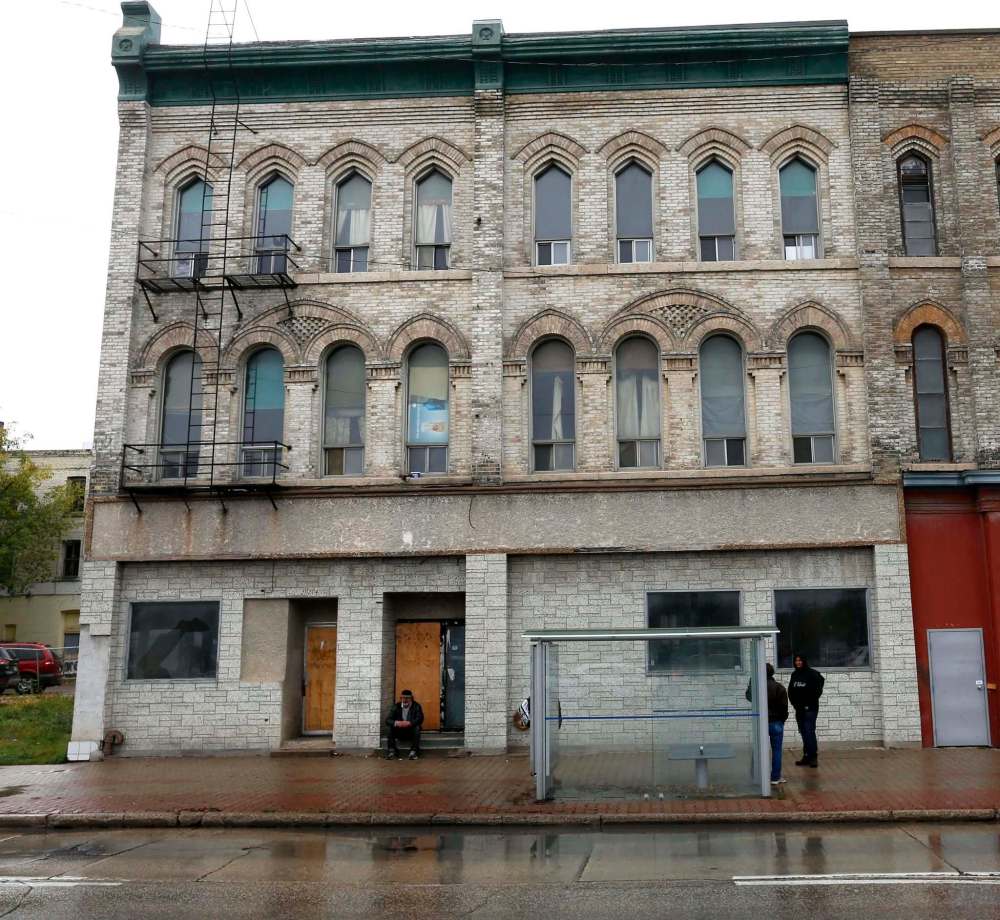
Within a year of Macdonald’s death, a collection of 44 retail stores the company had amassed under his guidance with the goal of creating a Western Canadian retail grocery chain was sold to Mutual Stores Limited, an arm’s-length company of U.S.-based retailer Safeway.
A few months later, the remainder of Macdonalds Consolidated’s assets, including warehouses and food-processing plants, were sold to Safeway. This was the wholesale network the U.S. retailer needed to get into the western Canadian grocery business in 1929.
Macdonalds Consolidated still exists today and was purchased in 2013 by Sobeys as part of its takeover of Canada Safeway Ltd.
Christian Cassidy writes about local history on his blog, West End Dumplings.
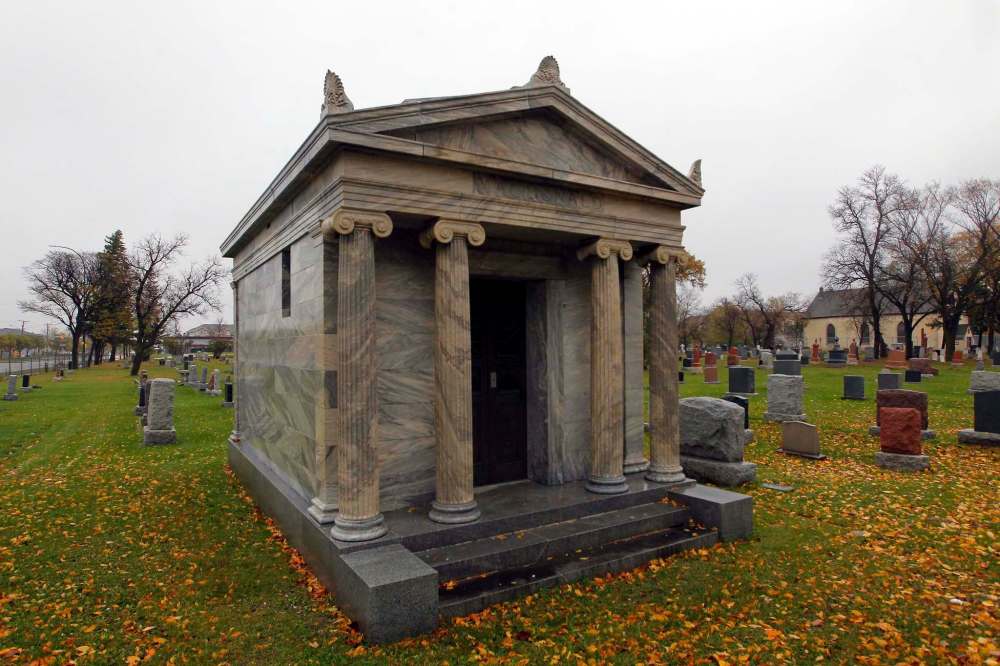

Our newsroom depends on a growing audience of readers to power our journalism. If you are not a paid reader, please consider becoming a subscriber.
Our newsroom depends on its audience of readers to power our journalism. Thank you for your support.

